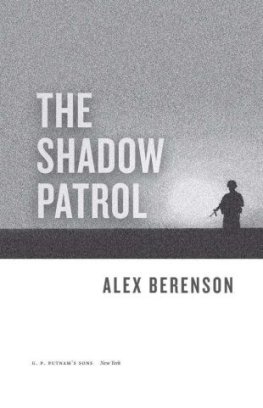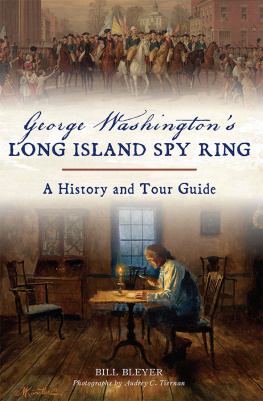George Plimpton - Shadow Box: An Amateur in the Ring
Here you can read online George Plimpton - Shadow Box: An Amateur in the Ring full text of the book (entire story) in english for free. Download pdf and epub, get meaning, cover and reviews about this ebook. year: 2010, publisher: Lyons Press, genre: Detective and thriller. Description of the work, (preface) as well as reviews are available. Best literature library LitArk.com created for fans of good reading and offers a wide selection of genres:
Romance novel
Science fiction
Adventure
Detective
Science
History
Home and family
Prose
Art
Politics
Computer
Non-fiction
Religion
Business
Children
Humor
Choose a favorite category and find really read worthwhile books. Enjoy immersion in the world of imagination, feel the emotions of the characters or learn something new for yourself, make an fascinating discovery.

- Book:Shadow Box: An Amateur in the Ring
- Author:
- Publisher:Lyons Press
- Genre:
- Year:2010
- Rating:3 / 5
- Favourites:Add to favourites
- Your mark:
- 60
- 1
- 2
- 3
- 4
- 5
Shadow Box: An Amateur in the Ring: summary, description and annotation
We offer to read an annotation, description, summary or preface (depends on what the author of the book "Shadow Box: An Amateur in the Ring" wrote himself). If you haven't found the necessary information about the book — write in the comments, we will try to find it.
Shadow Box: An Amateur in the Ring — read online for free the complete book (whole text) full work
Below is the text of the book, divided by pages. System saving the place of the last page read, allows you to conveniently read the book "Shadow Box: An Amateur in the Ring" online for free, without having to search again every time where you left off. Put a bookmark, and you can go to the page where you finished reading at any time.
Font size:
Interval:
Bookmark:

GEORGE PLIM PTON
SHADOW BOX
Copyright George Plimpton, 1977
ACKNOWLEDGEMENTS
It is odd to thank an index list, but since the publishers have included one, it is not inappropriate: those listed have all had a hand in my education, such as it is, in matters pugilistic. Particular gratitude should be expressed to Archie Moore, Muhammad Ali, Roger Donoghue, Angelo Dundee, Bundini Brown, and George Brown (from the boxing profession); to John L. Heinz, who was so helpful with the history of amateurs in the ring (Chapter 5); to Joanie Hitzig, for providing the information about Albert Payne Terhune in that same chapter; to Jim Jacobs, who helped with the photo section, and provided much of the material for it; to my literary friends who helped me through my boxing experience (especially Blair Fuller); to Edward T. Chase, Gail Hochman. and Frank Kurtz, of Putnam's; and to Fayette Hickox, of The Paris Review. I am especially grateful to those friends who contributed fantasies to Chapter 21.
To Pat Ryan
He was not born in the woods to be scared by an owl.
1
I never understood boxing. When I was a boy, I think if my family had pointed out a famous prizefighter in the same restaurant, I would have stared at him, but out of curiosity, not admiration. Certainly I never liked the art itself. At school, once a month, we were required to box down in the gympaired off, with enormous gloves tied to our pipestem arms. When the master blew his whistle, we strained and lifted up these monstrous pillows to push and flail them at each other. It was the worst time of the month. Sometimes you could make an arrangement with your opponent. "Let's pretend," you could whisper nervously, and if he nodded wide-eyed at the temerity of the suggestion, you could have a reasonably good time. You could throw a tremendous stiff-armed haymaker, miss and fall down on the wood floor. But there were always many in the classjust about everyone, it occurs to mefrom whom you could never hope for any such accommodation. You could see it in their eyes. The thought of trying "let's pretend" would linger, but only until the master's whistle would blow.
These, who liked to sock and who listened carefully to the master's instructions as to how to do it better, went on to be admirable people, I suppose: abstract expressionists, scratch golfers, bond salesmen, police chiefs, bagpipe players, defensive tackles, most members of the New York Yacht Club, taxicab drivers, military men, of course; and they married young, and a lot of them were politicians, contractors, deep-sea fishermen, insurance salesmen, certain types of tennis players who play doubles very close to the net, daily columnists, duck hunters, citizens'-band users, Little League coaches, just about everyone in the repair business, short-order cooks, and goat ranchers. There are many others.
The other categorythe nonpunching typesis large, too. I am not good at lists of this sort, but I do know that the latter category includes all apartment-house doormen, a group who have agreed very early to accommodation, to "let's pretend." They are supposed to be custodians, the grandest of them in brown greatcoats with gold buttons in a long row down the front, and occasionally they help unload a taxi. They rock back and forth on their heels. Everyone who lives in the apartment house must pass by. But, in fact, in the cells of the high rises that rear up behind them a huge range of activitysome of it splendid, much of it humdrum, some of it traumaticgoes on over which the doormen have no control. Like deaf zoo-keepers they stand at the entryway to all this. "Yes, madam, the Zuckermans live on the fifth floor." They are custodians, but they are not committed, which is why on occasion in New York City doormen submit with great ease to having adhesive tape pasted over their mouths by armed robbers with satchels going up to fleece the Zuckermans. The doormen are quite docile about it. Later, they are discovered seated, tied to the finely polished oak benches in the lobby. Their eyes roll above the tape.
As a youngster I came home past a doorman. He was very large and important-looking, but even at a young age I knew that he was a nonbelligerent. He was a polite Englishman. When he blew a whistle for a taxi, he never gave it a furious blast the way a policeman wouldor an abstract expressionist, or a goat rancher. His name was John.
"John, we boxed today," I told him.
"I see you are unscathed," he said. "You are either very nimble, or the other poor chap is a ruin."
He said that every month.
Outside of those gym sessions at school, I never hit anyone when I was growing up. Once, down on Lexington Avenue and Ninety-sixth Street, my younger brother and I were accosted by a pair of kids a couple of years older, perhaps eleven or twelve. They were nervous about what they were going to do. We were coming back from Sunday School. They demanded our money, backing us against a wall, and my brother shot his fists upthey were about the size of plumsin a classic old-time-fighter's stance, like a miniature Jem Mace in the boxing prints, but I said, No, no, no, and I forked over the twenty cents that was left over from busfare. The shame of it lasts to this day. My brother and I never talked about it. I didn't say anything to John, the doorman, when we went up to the apartment. I told Mother. I told her that I had tried to trick the thieves by handing over what I thought was an empty fake-leather change purse, thinking that the twenty cents was in my other pocket, but I heard the coins click inside when I gave it to them, and they turned and ran. So they got everything.
"It wasn't very good thinking in the first place," my mother had said, "since the purse was worth a dollar." She got a detective up to the apartment from the local precinct station and suggested, as he was writing up his report, that he hang around the local cigar stores where these sorts of kids lounged around, to see if he could, as she put it, "hear anything."
I could have gone peaceably enough through life without taking a poke at anyone or being poked at, but then, when I became a writer for Sports Illustrated, in the late fifties, and got involved in "participatory journalism"that ugly descriptive friends would say, "Well, now that you've played professional baseball and are writing a book about it, and you're thinking of basketball and football and playing the tambourine in some music group, and all those things, when are you going to fight a professional fighter? When are you going to fight Sonny Liston?"
"Well, I'm not going to fight anyone," I said. "I am going to play tennis. Perhaps I am going to sing. Would it not be interesting to sing in the Metropolitan Opera?"
It was not that my friends turned away and shamed me, or kept badgering me, but finally that I realized that boxing was perhaps the ultimate confrontation, certainly the most time-honored oneone man versus another in the most basic terms and that I could hardly go on as a participatory journalist without investigating the sport.
I began considering how to go about it. My notion became to persuade a champion fighter to box a three-round exhibition for which I would train extensively, learning as much as I could about the profession and its practitioners as I went along. I decided to write a letter. Floyd Patterson was the heavyweight champion then, just a few pounds over my weight. He might have been a better fighter to contact for what I wanted to do, since, as Red Smith once wrote about him, he looked like a man who wanted to carry an opponent and didn't know how. He could have practiced on me. But a friend pointed out that things were going to be difficult enough without my trying to fight out of my class, especially up in a heavier division. "If you're going to box someone in another division," he said, "pick the bantamweights."
Next pageFont size:
Interval:
Bookmark:
Similar books «Shadow Box: An Amateur in the Ring»
Look at similar books to Shadow Box: An Amateur in the Ring. We have selected literature similar in name and meaning in the hope of providing readers with more options to find new, interesting, not yet read works.
Discussion, reviews of the book Shadow Box: An Amateur in the Ring and just readers' own opinions. Leave your comments, write what you think about the work, its meaning or the main characters. Specify what exactly you liked and what you didn't like, and why you think so.



